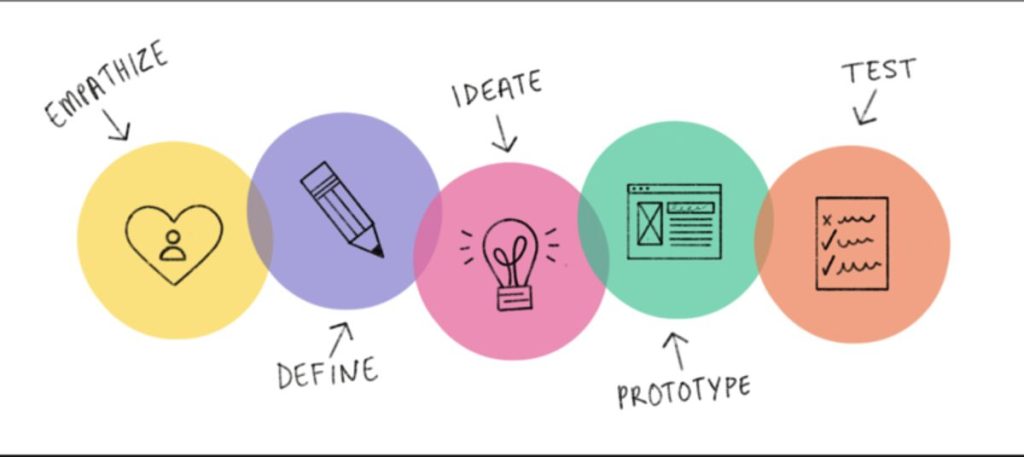Managing student loans after graduation can feel like a daunting task, but with the right strategies, you can take control of your finances and work towards a debt-free future. This article will provide you with effective strategies for managing your student loans, helping you navigate repayment options, budgeting, and even exploring forgiveness programs. Whether you’re a recent graduate or someone looking to improve your financial literacy, these tips will empower you to handle your student loans effectively.
Key Takeaways
- Understand your student loan terms, including interest rates and repayment schedules.
- Create a budget to track your income and expenses, and set clear financial goals.
- Make extra payments to reduce your debt faster, especially on high-interest loans.
- Explore loan forgiveness programs that may be available to you based on your career.
- Consider refinancing options to lower interest rates and simplify your payments.
Understanding Your Student Loan Terms
Managing student loans can feel overwhelming, but understanding your loan terms is the first step to taking control of your finances. Here’s what you need to know:
Know Your Interest Rates
Interest rates can make a big difference in how much you pay over time. Knowing your interest rates helps you plan better. Fixed rates stay the same, while variable rates can change. Make sure you know which type you have.
Understand Your Repayment Schedule
Your repayment schedule tells you when and how much you need to pay. Most standard and graduated payment plans have repayment terms of up to 10 years for individual loans or up to 30 years if your loans are consolidated. Mark these dates on your calendar to avoid missing payments.
Familiarize Yourself with Loan Types
There are different types of student loans, like federal and private loans. Federal loans often have more flexible repayment options. Private loans might have higher interest rates but can be useful if you need more funds. Knowing the differences can help you make smarter choices.
Remember, understanding your loan terms is the first step to managing your debt effectively. It sets the foundation for all your future financial decisions.
For a quick reference, here’s a simple table to summarize:
| Loan Type | Interest Rate Type | Repayment Flexibility |
|---|---|---|
| Federal Loans | Fixed | High |
| Private Loans | Variable | Low |
By familiarizing yourself with these key aspects, you can make informed decisions and manage your student loans more effectively. This student loan terminology glossary can help you make informed borrowing decisions.
Creating a Budget to Manage Your Loans
Managing your student loans can feel overwhelming, but creating a budget is a great way to take control. A budget is simply a plan that helps you see where your money goes. Here’s how to get started:
Track Your Income and Expenses
To manage your loans effectively, you need to know your financial situation. Start by listing all your income sources, like your job or side gigs. Then, write down all your expenses, including rent, groceries, and loan payments. This will help you see where you can cut back.
Set Financial Goals
Once you know your spending habits, it’s time to set some goals. Do you want to pay off a specific amount of your loan this year? Or maybe save for a fun trip? Having clear goals will keep you motivated and focused.
Adjust Your Spending Habits
Now that you have your goals, look at your spending. Are there areas where you can save? Here are some ideas:
- Cook at home instead of eating out.
- Cancel subscriptions you don’t use.
- Find free or low-cost entertainment options.
Making small changes can lead to big savings!
A smart budget, tailored to your income and expenses, can be your best friend in paying off student loans while enjoying life.
By following these steps, you can create a budget that works for you and helps you manage your student loans effectively.
Making Extra Payments to Reduce Debt
Benefits of Paying More Than the Minimum
Paying more than the minimum on your student loans can really help you save money in the long run. By reducing the principal balance faster, you pay less interest over time. For example, if you owe $10,000 at a 4.5% interest rate and pay an extra $100 each month, you could be debt-free about five and a half years earlier.
How to Find Extra Money for Payments
Finding extra money to put towards your student loans might seem tough, but it’s doable! Here are some ideas:
- Pick up a part-time job or freelance work. Every little bit helps!
- Cut down on non-essential expenses. Maybe skip that daily coffee or eat out less often.
- Use windfalls wisely. Tax refunds or bonuses can go straight to your loans.
Prioritizing High-Interest Loans
When making extra payments, focus on loans with the highest interest rates first. This strategy, known as the debt avalanche method, helps you save the most money on interest. Once the highest-interest loan is paid off, move on to the next one. This way, you can tackle your debt more efficiently.
Making extra payments, even small ones, can make a big difference in how quickly you pay off your student loans. Stay motivated and keep your eye on the prize!
Exploring Loan Forgiveness Programs
When it comes to managing student loans, exploring loan forgiveness programs can be a game changer. These programs can help you reduce or even eliminate your student debt, especially if you work in certain fields. Here are some key options:
Public Service Loan Forgiveness
If you work for a government or nonprofit organization, you might qualify for Public Service Loan Forgiveness (PSLF). This program forgives the remaining balance on your Direct Loans after you’ve made 120 qualifying monthly payments under a qualifying repayment plan. It’s a fantastic opportunity for those dedicated to public service.
Teacher Loan Forgiveness
Teachers can also benefit from loan forgiveness programs. If you teach full-time for five complete and consecutive academic years in a low-income school or educational service agency, you could be eligible for forgiveness of up to $17,500 on your Direct Subsidized and Unsubsidized Loans. This is a great way to reduce your student debt while making a difference in the community.
Income-Driven Repayment Forgiveness
Income-Driven Repayment (IDR) plans can also lead to loan forgiveness. These plans set your monthly student loan payment at an amount intended to be affordable based on your income and family size. After making payments for 20 or 25 years, depending on the plan, any remaining loan balance can be forgiven. This option is especially helpful for those with lower incomes or larger loan balances.
Remember, each forgiveness program has unique requirements and strict approval standards. It’s important to research and understand the specifics of each program to determine which one is right for you.
In summary, exploring these forgiveness programs can significantly ease your financial burden. Make sure to check if you meet the requirements to benefit from these opportunities!
Utilizing Employer Repayment Benefits
Many employers are stepping up to help their employees tackle student loans. This can be a fantastic way to lighten your financial load while you work. Here’s how you can make the most of these benefits:
Check with Your HR Department
- Start by asking your HR department if your company offers any student loan repayment assistance. Many organizations are now including this in their benefits package.
- Some employers may match your payments or contribute a certain amount each month to help you pay down your loans faster.
- Don’t forget to inquire about any tax implications of these benefits, as they can vary.
Non-Profit Organization Assistance
- If you work for a non-profit, you might have access to special programs that help with student loan repayment. These organizations often have unique benefits to attract talent.
- Research if your employer participates in any federal programs that offer loan forgiveness for public service workers.
- Make sure to understand the eligibility requirements and how to apply for these benefits.
Employer-Sponsored Loan Repayment Programs
- Some companies have established their own loan repayment programs. These can significantly reduce your debt over time.
- Participating in these programs can be a game-changer for your financial health, allowing you to focus on your career without the heavy burden of student loans.
- Keep an eye out for any announcements or updates from your employer regarding these programs.
Taking advantage of employer repayment benefits can be a smart move. It’s a great way to reduce your student debt while building your career. Stay informed and proactive!
Staying Motivated and Disciplined
Paying off student loans can feel like a marathon, not a sprint. Celebrate small wins along the way to keep your spirits high. Did you make an extra payment this month? Treat yourself to a small reward. These little celebrations can make a big difference in staying motivated.
Celebrating Small Wins
- Acknowledge every payment you make, no matter how small.
- Reward yourself with something simple, like a favorite snack or a movie night.
- Keep a visual tracker of your progress to see how far you’ve come.
Having a Support System
Having a support system can be a game-changer. Whether it’s friends, family, or online communities, sharing your journey can provide encouragement and accountability. Sometimes, just talking about your debt management plan can make it feel more achievable.
Keeping Long-Term Goals in Mind
It’s easy to get bogged down by the day-to-day grind of loan repayment. Keep your long-term goals in mind to stay focused. Write them down and place them somewhere visible. This constant reminder can help you stay committed to achieving financial stability.
Remember, managing and repaying your debt is a journey. Stay disciplined, celebrate your progress, and lean on your support system when needed.
By following these strategies, you can stay motivated and disciplined in your journey to pay off your student loans. Every step counts, and soon enough, you’ll be on your way to financial freedom!
Exploring Refinancing Options
Refinancing your student loans can be a smart way to manage your debt. It allows you to combine multiple loans into one, often with a lower interest rate. This can help you pay off your loans faster and save money in the long run. Here are some key points to consider:
Understanding Refinancing Benefits
- Lower Interest Rates: If you have good credit, you might qualify for a lower interest rate, which can reduce your monthly payments.
- Simplified Payments: Combining multiple loans into one means you only have to keep track of a single payment each month.
- Flexible Terms: You can choose a repayment term that fits your budget, whether you want to pay off your loans quickly or take a bit longer.
Comparing Lenders and Rates
When looking to refinance, it’s important to shop around. Here’s how:
- Research Different Lenders: Look for banks, credit unions, and online lenders that offer refinancing options.
- Compare Interest Rates: Check the interest rates offered by different lenders to find the best deal.
- Read the Fine Print: Make sure to understand any fees or penalties associated with refinancing.
Avoiding Common Pitfalls
While refinancing can be beneficial, there are some things to watch out for:
- Loss of Federal Benefits: If you refinance federal loans into a private loan, you may lose benefits like income-driven repayment plans and loan forgiveness options.
- Higher Total Interest Costs: Sometimes, extending the loan term can lead to paying more interest over time, even if the monthly payment is lower.
- Prepayment Penalties: Some lenders may charge fees if you pay off your loan early, so check for this before signing.
Remember, refinancing is a big decision. Take your time to weigh the pros and cons, and make sure it aligns with your financial goals.
In summary, refinancing can be a great tool to help you manage your student loans effectively. By understanding the benefits, comparing options, and avoiding pitfalls, you can make a smart choice that helps you achieve your financial goals. Don’t forget to consider the best student loan refinance lenders of November 2024 to find the right fit for you!
Seeking Professional Help When Needed
Sometimes, managing debt on your own can feel overwhelming. That’s when seeking professional help can make a big difference. Getting expert advice can provide you with a clear path forward and relieve some of the stress you’re feeling.
Credit Counseling Services
Non-profit credit counselors can review your budget and debt, helping you find solutions that fit your situation. Usually, the assessment is free, and they can offer multiple options to help you move forward. This can be a great first step if you’re feeling lost.
Debt Management Plans
A debt management plan (DMP) is a structured repayment plan set up by a credit counseling agency. They negotiate with your creditors to lower interest rates and consolidate your payments into one monthly bill. This can simplify your finances and help you pay off your debt faster.
Bankruptcy as a Last Resort
If your debt is unmanageable, bankruptcy might be an option. It’s a serious step that can have long-term effects on your credit, but it can also provide a fresh start. Always consult with a professional to understand the implications and whether it’s the right choice for you.
Remember, seeking help is a sign of strength, not weakness. It’s about taking control of your financial future and finding the best path to becoming debt-free.
Investing in Your Financial Future
Exploring Different Investment Options
Investing is a smart way to grow your money over time. Here are some options to consider:
- Stock Market: Buying shares in companies can lead to big gains, but remember, it can also be risky.
- Real Estate: Owning property can provide rental income and increase in value.
- Retirement Accounts: Contributing to a 401(k) or IRA helps you save for the future while possibly growing your money.
Balancing Debt Repayment and Savings
It’s important to find a balance between paying off your student loans and saving for the future. Here are some tips:
- Set aside a portion of your income for savings each month.
- Prioritize high-interest loans to pay off first, but don’t forget to save.
- Create a budget that allows for both debt repayment and savings.
Setting SMART Financial Goals
Setting clear goals can help you stay focused. Use the SMART method:
- Specific: Define what you want to achieve.
- Measurable: Track your progress.
- Achievable: Set realistic targets.
- Relevant: Ensure your goals align with your overall financial plans.
- Time-bound: Set deadlines for your goals.
Remember, investing in your future is just as important as managing your current debt. With the right strategies, you can achieve both financial stability and growth.
Wrapping It Up: Your Journey to Managing Student Loans
Managing your student loans might seem tough, but it’s totally possible with the right steps. Start by making a budget and sticking to it. Look into different repayment plans to find what works best for you. Don’t forget to check out options like loan forgiveness or refinancing to lighten your load. Every little bit counts, so even small extra payments can really help over time. Stay patient and keep pushing forward, and soon you’ll see how far you’ve come. You can do this!
Frequently Asked Questions
What should I know about my student loans?
It’s important to understand how much you owe, the interest rates, and the repayment terms for each loan.
How can I create a budget to manage my loans?
Start by tracking your income and expenses, then set financial goals to help you stay on track.
What is the best way to pay off student loans faster?
Making extra payments, especially on high-interest loans, can help reduce your debt more quickly.
Are there programs to forgive student loans?
Yes, there are forgiveness programs for those in public service or teaching positions.
How can my employer help with student loans?
Some employers offer repayment assistance as part of their benefits, so check with your HR.
What should I do if I can’t make my loan payments?
Reach out to your loan servicer to discuss options like deferment or alternative repayment plans.
What is loan refinancing and how can it help?
Refinancing can lower your interest rate or combine multiple loans into one payment, making it easier to manage.
When should I seek professional help for my loans?
If you’re feeling overwhelmed, consider speaking with a credit counselor for guidance and support.



